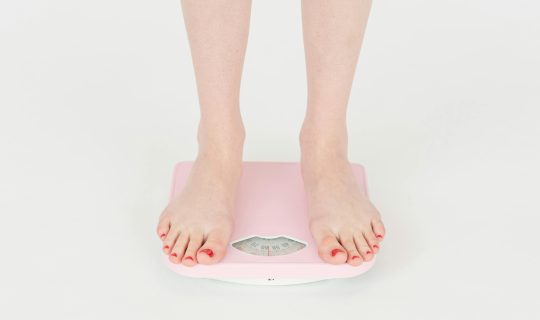Ozempic, Wegovy and other GLP-1 agonists — often referred to as weight loss jabs — have become almost impossible to ignore. They’re widely promoted for appetite control, weight loss and improved blood sugar regulation, and for many busy women they seem like a welcome shortcut when trying to lose some extra weight (not discussing here…
How Can I Lose Weight? A Nutritionist Debunks Common Food and Diet Myths
by Lucia Stansbie
If you’ve ever typed “how can I lose weight?” or “best diet to lose weight” into a search engine, you’ve likely come across countless answers—some helpful, some downright confusing or wrong. As a qualified nutritionist, I want to help cut through the noise by addressing common food and weight loss myths that may be holding you back from real, lasting results and might even hinder your health.
Myth 1: All Calories Are the Same
Not true. While a calorie is technically a unit of energy, your body utilises calories from protein, fat, and carbohydrates in very different ways.
Protein calories help build and repair muscle, support the immune system, and are rarely stored as fat. Fat calories are energy-dense (9 kcal/gram vs. 4 kcal for protein or carbs) but are needed for hormone production and maintain healthy cell membraines to allow nutrients in and teoxins out. Carbohydrates are mainly burned for fuel (they are the favourite source of energy for all body cells, including brain ones) and only stored as fat if energy stores are full.
All three macronutrients are needed, and cutting out one group interly, for example eliminating carbohydrates or fat, can have a serious impact on your body basic functions and overall health.
Myth 2: Calorie Counting Is the Secret to Weight Loss
Totally and wrong and dangerous as the body adapts to calorie restriction by slowing down your metabolism and ramping up hunger hormones—making long-term weight loss even more difficult.
If you’re thinking, “How can I lose weight and keep it off?”, the answer lies in more than just cutting calories. Building muscle through activity, choosing nutrient-dense foods, balance your blood sugar levels and supporting your metabolism are far more effective in the long run.
Myth 3: Carbohydrates Make You Fat
Carbs have developed a bad reputation, especially with the rise of keto and low-carb diets. But let’s set the record straight.
Carbohydrates are the body’s preferred fuel source. Whole carbs—like fruits, vegetables, legumes, and whole grains—are rich in fiber and support gut health. Gut bacteria ferment these carbs to produce short-chain fatty acids, which help regulate insulin and metabolism.
Yes, a very low-carb diet may give rapid initial results due to water loss, but this isn’t a long term fix. If you’re working with a reputable and registered nutritionist to lose weight, they’ll tell you that cutting out entire food groups isn’t necessary—and may harm your long-term health.
Myth 4: Fat Makes You Fat
For years, people avoided fat, thinking it was the main cause of weight gain. But healthy fats are essential for your brain, hormones, and cell health. They also make meals more satisfying, helping you eat less overall.
What matters is focusing on healthy fats like avocado, olive oil, nuts, seeds, and oily fish. These support satiety and better nutrient absorption, as many vitamins like A, K and D are fat soluble.
Myth 5: Artificial Sweeteners Help You Lose Weight
Swapping sugar for zero-calorie sweeteners might seem smart, but the science tells a different story. Some artificial sweeteners may disrupt gut bacteria, increase cravings, and even affect blood sugar responses—making weight loss harder in the long run.
So, What’s the Best Diet to Lose Weight?
There’s no one-size-fits-all answer. The best diet is one that nourishes your body, fits your lifestyle, and is sustainable in the long term. As a nutritionist, I help clients build a healthy relationship with food, create personalized weight loss plans, and make smart, evidence-based decisions—not follow fads or myths.



